1620 – The Mayflower sailed from Plymouth, England, bound for the New World with 102 passengers. In August, the Mayflower had left Southampton with a smaller vessel – theSpeedwell – but the ship proved unseaworthy and twice was forced to return to port.
The Mayflower was headed for Virginia, where the colonists – half religious dissenters and half entrepreneurs – had been authorized to settle by the British crown. However, stormy weather and navigational errors forced the Mayflower off course, and on November 21 the “Pilgrims” reached Massachusetts, where they founded the first permanent European settlement in New England in late December.
1893 – The largest land run in history began with more than 100,000 people pouring into the Cherokee Strip of Oklahoma to claim valuable land that had once belonged to Native Americans. With a single shot from a pistol the mad dash began, and land-hungry pioneers on horseback and in carriages raced forward to stake their claims to the best acres.
1908 – Buick Motor Company head William Crapo Durant spent $2,000 to incorporate General Motors in New Jersey. Durant, a high-school dropout, had made his fortune building horse-drawn carriages, and in fact he hated cars–he thought they were noisy, smelly, and dangerous. Nevertheless, the giant company he built would dominate the American auto industry for decades.
1932 – Mohandas Karamchand Gandhi began a hunger strike in protest of the British government’s decision to separate India’s electoral system by caste. “This is a god-given opportunity that has come to me,” Gandhi said from his prison cell at Yerovda Jail near Bombay, “to offer my life as a final sacrifice to the downtrodden.”
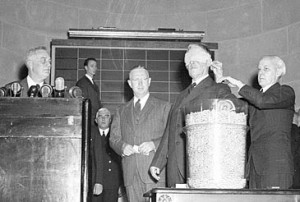
1940 – The Burke-Wadsworth Act was passed by Congress, by wide margins in both houses, and the first peacetime draft in the history of the United States was imposed. The registration of men between the ages of 21 and 36 began exactly one month later, as Secretary of War Henry L. Stimson, who had been a key player in moving the Roosevelt administration away from a foreign policy of strict neutrality, began drawing draft numbers – blindfolded – out of a glass bowl. The numbers were handed to the president, who read them aloud for public announcement.
1940 – Sam Rayburn of Texas became Speaker of the U.S. House of Representatives. Rayburn served as Speaker for 17 years.
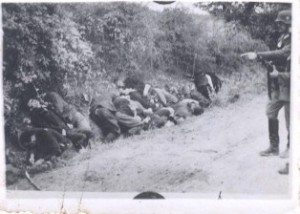
1941 – Anti-German uprisings in Serbia led to Adolf Hitler signing Directive No. 31a. Field Marshall Wilhelm Keitel, chief of the supreme command of the German armed forces, pursuant to Hitler’s directive, sent instructions for the suppression of insurgency movements in the occupied territories. Those instructions were extreme:
The death penalty for 100 communists for the life of a single German soldier. For each wounded German soldier, 50 were to be executed.
In October 1941, Serbian forces captured a German platoon. A rescue squad sent to free them was ambushed, with 10 German soldiers killed and another 26 wounded. The reprisal was swift and furious.
In the village of Kragujevac, all males between 16 and 60 were taken to district military headquarters for identification, then to cabins overlooking the town. Civil servants were rounded up from offices, and 300 students over 16 were taken from the high school, along with 18 teachers.
Over 2,700 were summarily executed.
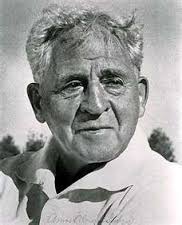
1960 – Amos Alonzo Stagg announced his retirement from football coaching. It probably was the right time. The College Football Hall of Fame coach (and the man who is credited with innovations including the tackling dummy, the huddle, the reverse and man in motion plays, the lateral pass, uniform numbers, and awarding varsity letters) was 96 years old.
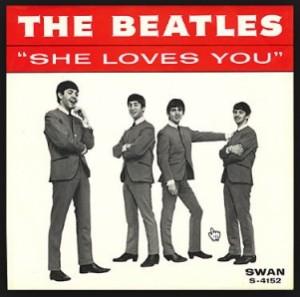
1963 –The Beatles released ‘She Loves You’ / ‘I’ll Get You’ in the U.S. on the Swan Label. The single failed to generate much interest in the U.S. until it was re-released in 1964 on Capitol Records following the success of ‘I Want To Hold Your Hand’.

1963 – Remember this?
“There is nothing wrong with your television set. Do not attempt to adjust the picture. We are controlling transmission. We will control the horizontal. We will control the vertical.”
The Outer Limits premiered on ABC. Although it is often cited as a “cult classic”, the series lasted just 16 months before low ratings brought it to an end.
1964 – Shindig premiered on ABC. The program had go-go girls and the biggest rock bands of the day in a dance party environment. Regulars were Jimmie O’Neill and the Shindig Dancers. The first show featured Sam Cooke, The Everly Brothers, The Righteous Brothers, The Wellingtons and Bobby Sherman.
1965 – The Dean Martin Show debuted on NBC. The weekly variety show continued on the network for nine years.
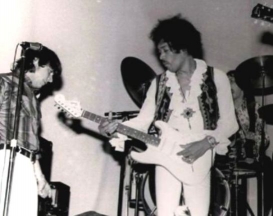
1970 – Jimi Hendrix joined Eric Burdon and War on stage for a rendition of Tobacco Road at Ronnie Scott’s Club in London for what would become the guitarist’s last public appearance. He was dead less than 72 hours later.
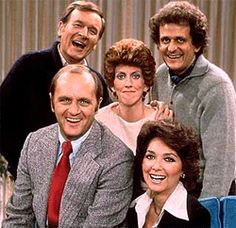
1972 – The Bob Newhart Show premiered on CBS. Newhart played Robert Hartley, a Chicago psychologist, for six seasons.
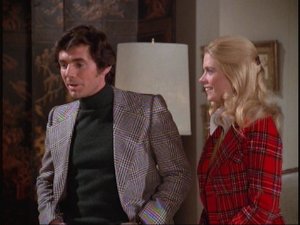
1972 – Bridget Loves Bernie premiered on CBS. The series was regarded, at the time, as somewhat controversial since the premise featured the marriage between a wealthy Irish Catholic teacher and a Jewish cab driver.
Even though it was ranked 5th among all shows that season, CBS executives decided to cancel the show after one season in response to hate mail from viewers who objected to the inter-religious marriage depicted on the series. It was the highest-rated television program ever to be canceled after only one season.
1974 – President Gerald R. Ford issued a proclamation that offered amnesty to those who evaded the draft during the Vietnam War. Ford also granted amnesty to those in the military who deserted their duty while serving. However, the amnesty came with certain conditions, namely that those involved agreed to reaffirm their allegiance to the United States and serve two years working in a public service job.
Three years after Ford’s conditional amnesty program, President Jimmy Carter granted a pardon to draft evaders (excluding deserters) without a requirement of public service.
1982 – Hours after Israeli forces entered West Beirut, Phalangist militiamen began a massacre of Palestinians at the Sabra and Shatila refugee camps. Within two days, 1,000 men, women, and children were dead.
1984 – Miami Vice premiered on NBC. The adventures of Sonny Crockett and Rico Tubbs lasted five seasons.
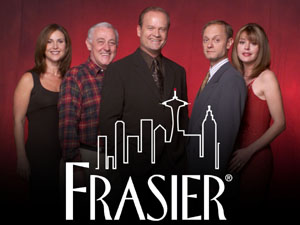
1993 – Frasier, a spin-off of the long-running mega-hit sitcom Cheers, made its debut on NBC. The series lasted 11 years.
1999 – Hurricane Floyd stormed ashore, pounding North Carolina with 110 mph winds, dumping more than a foot of rain, damaging 12,000 homes and claiming more than 50 lives. Floyd also caused the largest peacetime evacuation in U.S. history, with 2.6 million people ordered away from the shores in the hurricane’s path.
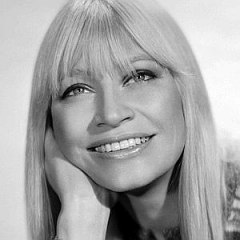
2009 – Mary Travers, legendary folk singer as part of Peter, Paul & Mary – ‘Blowin’ In The Wind’, ‘Lemon Tree’, ‘Puff The Magic Dragon’, ‘Leaving On A Jet Plane’ and many, many others, died from complications arising from chemotherapy treatments for leukemia.
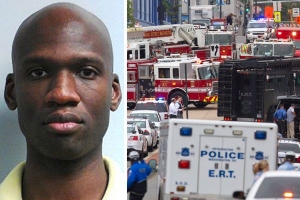
2013 – Aaron Alexis, a computer contractor for a private information technology firm, went on a rampage at the Navy Yard in Washington, DC, killing 12 people and wounding several others over the course of an hour before he is fatally shot by police.
The shooting spree caused officials to put part of Washington on lockdown due to initial suspicions that other gunmen might have been involved in the incident; however, by the end of the day, authorities determined that Alexis had acted alone.
Compiled by Ray Lemire ©2015 RayLemire.com. All Rights Reserved.
Thanks Ray….I’ve missed my history re-education lessons. So many things forgotten through the years.
Thanks for reading it, Eileen, and thanks for the comment! 🙂
Interesting as always. Thanks for posting and welcome back:)
Thank you, Norma..